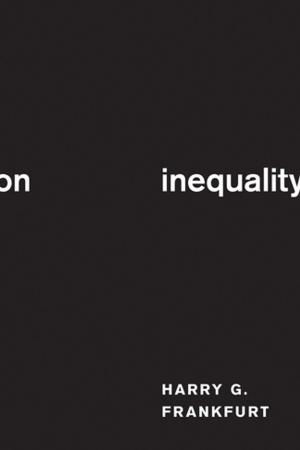Primates and Philosophers: How Morality Evolved
How Morality Evolved
Nonfiction, Science & Nature, Science, Biological Sciences, Zoology, Evolution| Author: | Frans de Waal | ISBN: | 9781400830336 |
| Publisher: | Princeton University Press | Publication: | January 12, 2009 |
| Imprint: | Princeton University Press | Language: | English |
| Author: | Frans de Waal |
| ISBN: | 9781400830336 |
| Publisher: | Princeton University Press |
| Publication: | January 12, 2009 |
| Imprint: | Princeton University Press |
| Language: | English |
"It's the animal in us," we often hear when we've been bad. But why not when we're good? Primates and Philosophers tackles this question by exploring the biological foundations of one of humanity's most valued traits: morality.
In this provocative book, primatologist Frans de Waal argues that modern-day evolutionary biology takes far too dim a view of the natural world, emphasizing our "selfish" genes. Science has thus exacerbated our reciprocal habits of blaming nature when we act badly and labeling the good things we do as "humane." Seeking the origin of human morality not in evolution but in human culture, science insists that we are moral by choice, not by nature.
Citing remarkable evidence based on his extensive research of primate behavior, de Waal attacks "Veneer Theory," which posits morality as a thin overlay on an otherwise nasty nature. He explains how we evolved from a long line of animals that care for the weak and build cooperation with reciprocal transactions. Drawing on both Darwin and recent scientific advances, de Waal demonstrates a strong continuity between human and animal behavior. In the process, he also probes issues such as anthropomorphism and human responsibilities toward animals.
Based on the Tanner Lectures de Waal delivered at Princeton University's Center for Human Values in 2004, Primates and Philosophers includes responses by the philosophers Peter Singer, Christine M. Korsgaard, and Philip Kitcher and the science writer Robert Wright. They press de Waal to clarify the differences between humans and other animals, yielding a lively debate that will fascinate all those who wonder about the origins and reach of human goodness.
"It's the animal in us," we often hear when we've been bad. But why not when we're good? Primates and Philosophers tackles this question by exploring the biological foundations of one of humanity's most valued traits: morality.
In this provocative book, primatologist Frans de Waal argues that modern-day evolutionary biology takes far too dim a view of the natural world, emphasizing our "selfish" genes. Science has thus exacerbated our reciprocal habits of blaming nature when we act badly and labeling the good things we do as "humane." Seeking the origin of human morality not in evolution but in human culture, science insists that we are moral by choice, not by nature.
Citing remarkable evidence based on his extensive research of primate behavior, de Waal attacks "Veneer Theory," which posits morality as a thin overlay on an otherwise nasty nature. He explains how we evolved from a long line of animals that care for the weak and build cooperation with reciprocal transactions. Drawing on both Darwin and recent scientific advances, de Waal demonstrates a strong continuity between human and animal behavior. In the process, he also probes issues such as anthropomorphism and human responsibilities toward animals.
Based on the Tanner Lectures de Waal delivered at Princeton University's Center for Human Values in 2004, Primates and Philosophers includes responses by the philosophers Peter Singer, Christine M. Korsgaard, and Philip Kitcher and the science writer Robert Wright. They press de Waal to clarify the differences between humans and other animals, yielding a lively debate that will fascinate all those who wonder about the origins and reach of human goodness.















